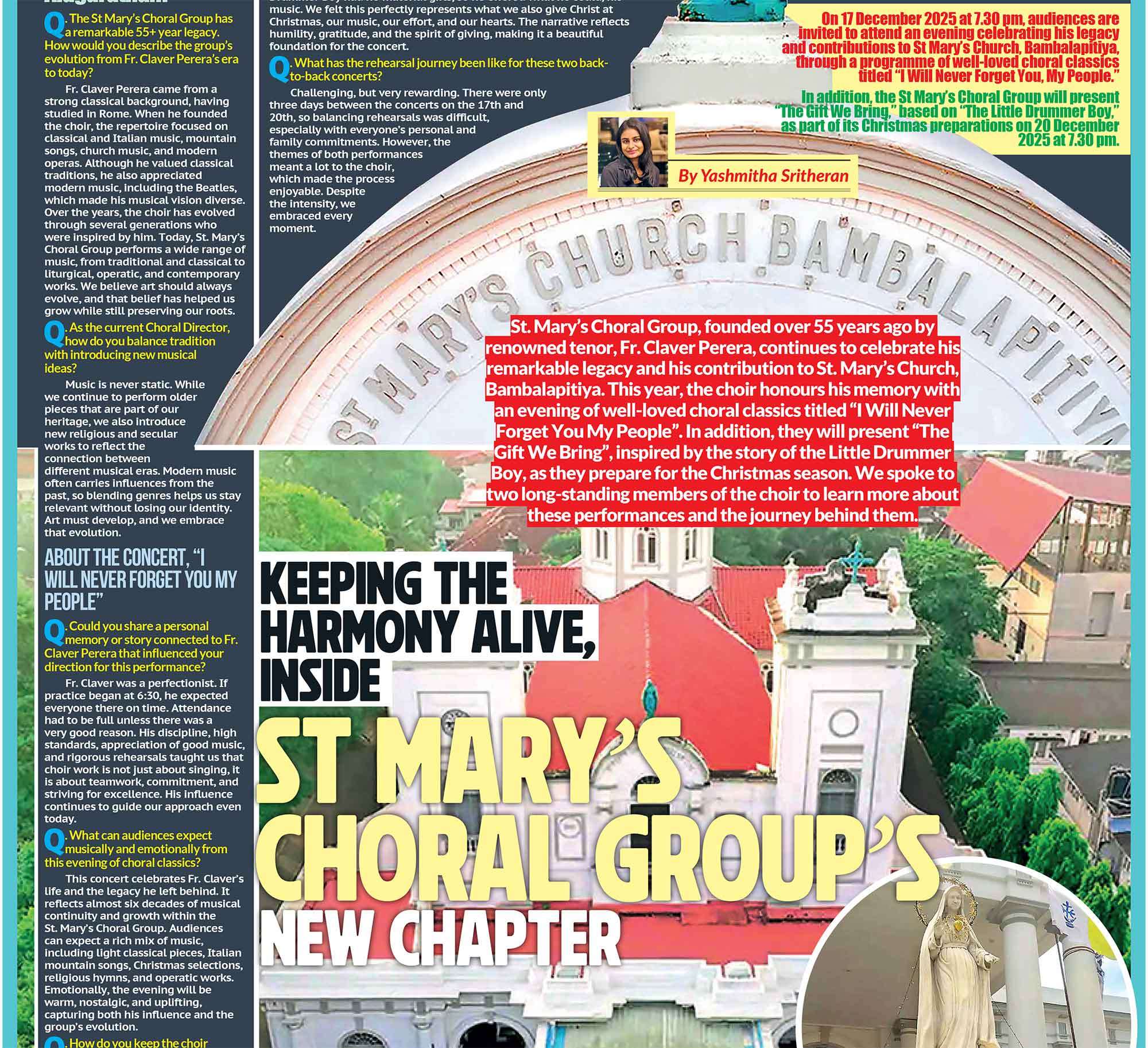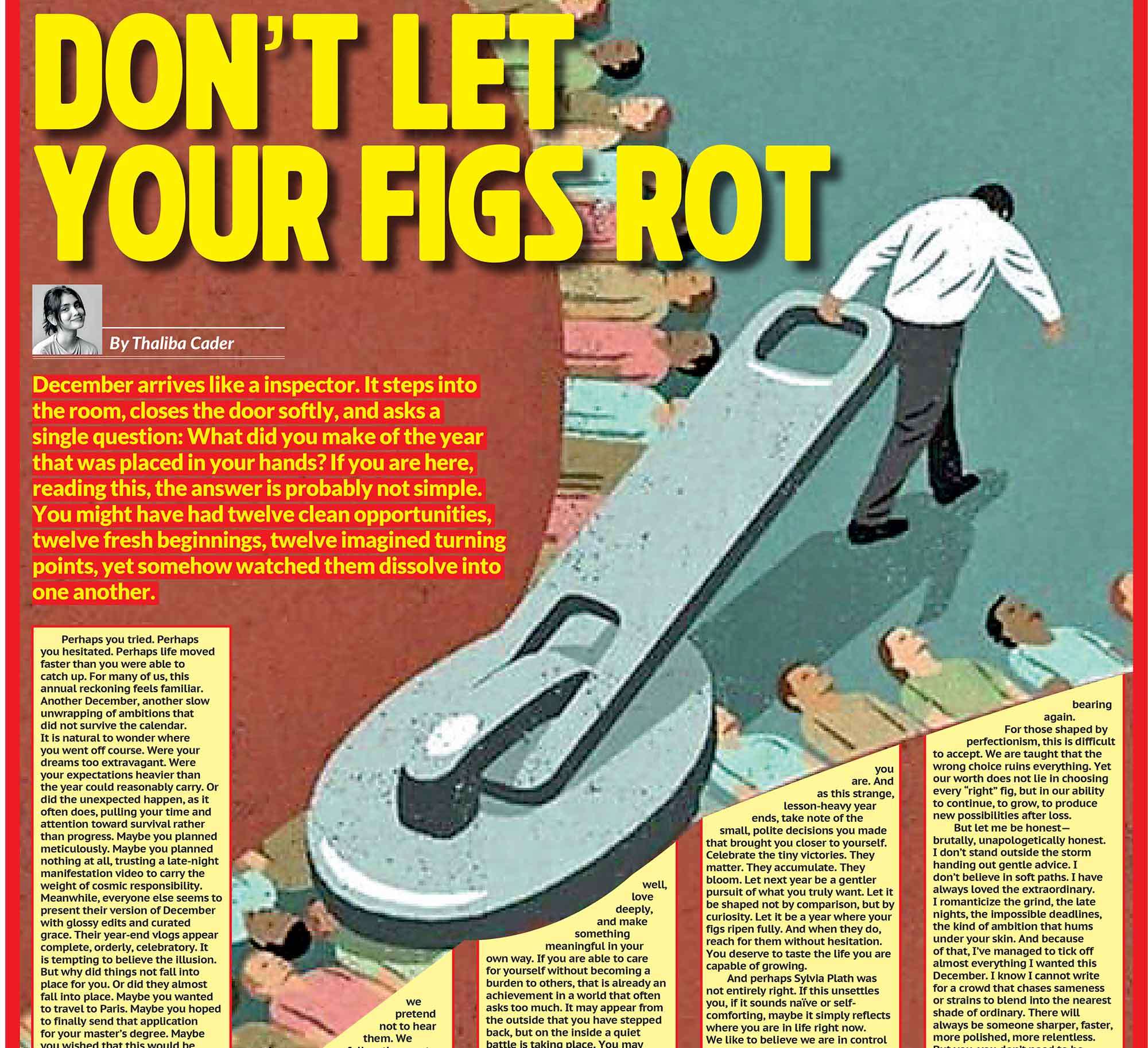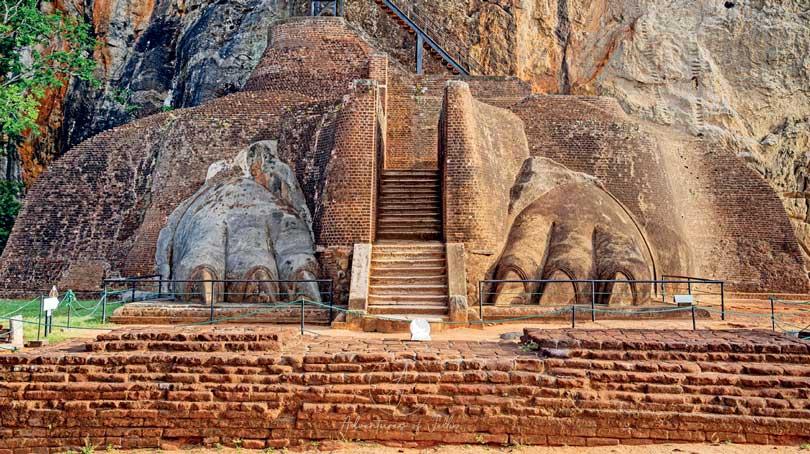
Sigiriya (The Lion Rock)
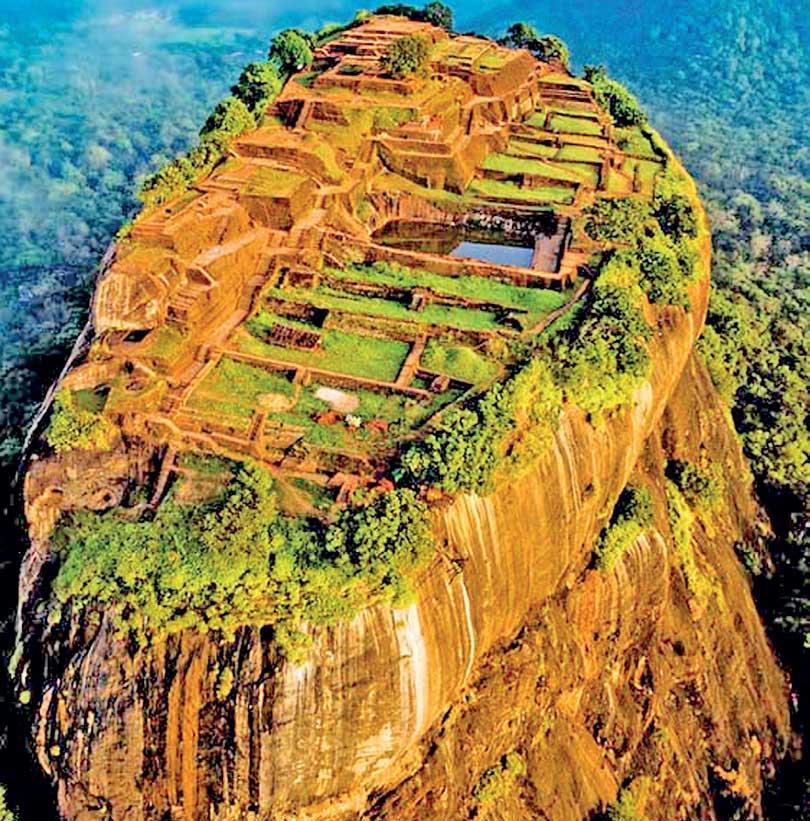
Sigiriya
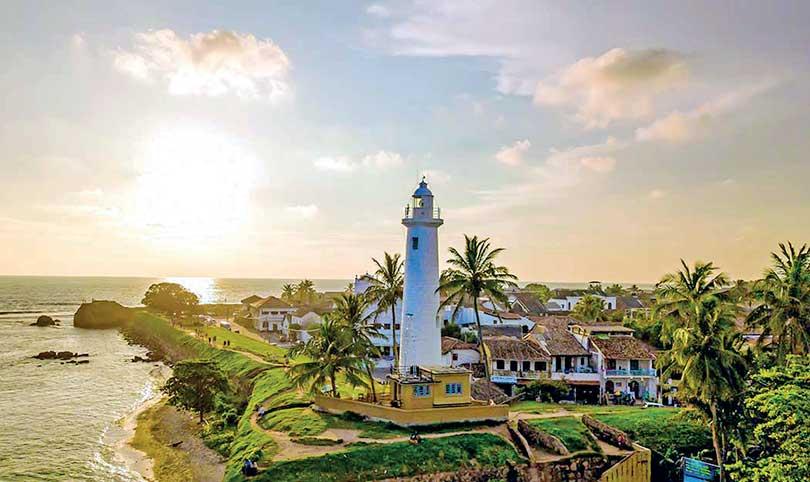
Galle Fort
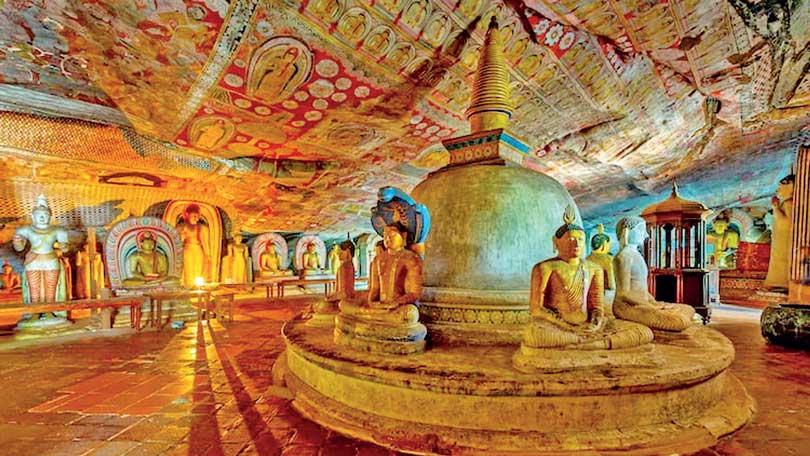
The Dambulla Cave Temple
 There is something magical about Westminster on a crisp London evening. Last week, as I walked past the historic buildings glowing in the soft light, I felt the hum of global conversations taking place all around me. Diplomats, academics, journalists and policymakers were gathering for the launch of the Foreign Policy Centre’s latest report on soft power, and I was lucky enough to be in the room. As I listened to the discussions, it struck me that what we were talking about in Westminster was not just an abstract idea for scholars, but something that touches all our lives and something profoundly relevant for Sri Lanka. It made me think about how a nation tells its story to the world, and how public relations, my chosen field, helps connect the dots between culture, tourism, trade and investment. This is my very first column for The Sun (Daily Mirror), and I am thrilled to have the opportunity to share these reflections with you. My world is public relations, and in this space, I will look at the world through the lens of PR, exploring how storytelling shapes economies, societies and reputations.
There is something magical about Westminster on a crisp London evening. Last week, as I walked past the historic buildings glowing in the soft light, I felt the hum of global conversations taking place all around me. Diplomats, academics, journalists and policymakers were gathering for the launch of the Foreign Policy Centre’s latest report on soft power, and I was lucky enough to be in the room. As I listened to the discussions, it struck me that what we were talking about in Westminster was not just an abstract idea for scholars, but something that touches all our lives and something profoundly relevant for Sri Lanka. It made me think about how a nation tells its story to the world, and how public relations, my chosen field, helps connect the dots between culture, tourism, trade and investment. This is my very first column for The Sun (Daily Mirror), and I am thrilled to have the opportunity to share these reflections with you. My world is public relations, and in this space, I will look at the world through the lens of PR, exploring how storytelling shapes economies, societies and reputations.
Soft Power: The Subtle Superpower
Joseph Nye, the Harvard professor who coined the term “soft power,” passed away just a few months ago, leaving us with a vocabulary that changed the way we understand global influence. Nye taught us that power is not only about coercion, the “hard power” of armies and sanctions, but also about attraction. The music we listen to, the books we read, the sporting heroes we admire, the cuisine we crave; these are often our first touch points with a country, long before we ever travel there. At the Westminster launch, there was a clear consensus. Soft power must be credible. It cannot be manufactured; it must be earned. Culture is often the first door through which the world encounters a country. Diasporas play an extraordinary role as bridges and advocates. And when soft power is harnessed well, it drives very real economic outcomes, from tourism and talent attraction to trade and foreign direct investment.
My Journey with Sri Lanka
My own journey with Sri Lanka began not with a government invitation but with friendships. The Sri Lankan diaspora in London was my first introduction to the island, and I have always loved the phrase “living bridge” to describe their role. I remember being welcomed into Sri Lankan homes and tasting fragrant hoppers for the first time, learning the heat levels of pol sambol and drinking endless cups of strong Ceylon tea. Food is an extraordinary diplomat. It breaks down barriers and invites curiosity. It led me to ask questions about the island, to read about its history and eventually to visit for myself. Like so many travellers, I was completely enchanted. I still remember standing in front of Sigiriya at sunrise, feeling dwarfed by its ancient majesty. I was moved by the spirituality of Kandy’s Temple of the Tooth, captivated by the colourful chaos of Pettah, and calmed by the stillness of a southern beach at sunset. Those moments have stayed with me.
Connecting the Cultural Dots
Culture starts a chain reaction. A song, a cricket match, a novel, a dish of food; these are often the sparks that begin a lifelong relationship with a place. Curiosity becomes tourism. Tourism builds familiarity. Familiarity fosters trust and opens the door to trade. Trade leads to investment. Investment drives prosperity. But this does not happen automatically. It must be nurtured and guided by strategy. Having worked with more than 15 governments, from Ukraine to Canada, Spain to Gabon, Japan to South Korea, I have seen how ministries of culture, tourism, sport and trade can work together to craft a coherent national narrative. Soft power is not a sideshow to politics and economics. It is often the first handshake, the first impression, the first emotional connection.
Sri Lanka’s Soft Power Assets
Sri Lanka is blessed with an abundance of soft power assets that many countries would envy. Its Buddhist heritage and UNESCO World Heritage sites, from the sacred city of Anuradhapura to the cave temples of Dambulla, are breathtaking. Its colonial-era architecture in Galle Fort and Colombo tells a story of resilience and reinvention. Its cuisine is quietly winning global recognition. The humble hopper has become a star on London menus, and chefs around the world are embracing Sri Lanka’s vibrant flavours. The island’s tea culture is being reimagined as experience-driven tourism, with the 300 km Pekoe Trail inviting travellers to walk through the story of Ceylon tea. Colombo is finding its voice as a creative capital. The Galle Literary Festival continues to attract writers and readers from around the world, while independent galleries are putting Sri Lankan artists on the map. The wellness sector is thriving, with Ayurveda retreats drawing visitors seeking health and harmony. And of course, there is cricket. Few moments in sporting history rival the image of Sri Lanka lifting the 1996 World Cup, an act that gave the world a glimpse of the island’s spirit and talent.
Beyond Culture: From Familiarity to Prosperity
Soft power is not just about sentiment. It translates into measurable economic impact. Tourism remains a cornerstone of GDP. Positive international perceptions attract investors, encourage trade and invite collaboration. Sri Lanka has been climbing steadily in the Brand Finance Global Soft Power Index, now ranking 97th out of 193 countries, with marked gains in lifestyle appeal, inclusivity and sustainability. This is encouraging but it needs to be built upon with strategic communications, cultural diplomacy and creative industry investment.
The Story of a Nation
A nation’s story is told not by government communiqués but by its people. By the artists and writers who interpret its soul. By the entrepreneurs who carry its ideas into global markets. By the athletes who make its flag known in faraway stadiums. PR professionals are, at heart, storytellers. Our role is to bring coherence to a narrative, amplify voices and connect the dots between past, present and future. Sri Lanka’s story is rich, layered and full of potential. The world is ready to listen.
Looking Ahead
As I begin this column, I want to explore how Sri Lanka can harness narrative power to achieve its ambitions; economic, cultural and diplomatic. In a world where stories move faster than policy papers, those who tell their story with confidence will shape the future. Soft power may be subtle, but it is not soft in its impact. It opens doors, builds bridges and transforms destinies. I am excited to see how Sri Lanka writes its next chapter.
SRI LANKA’S TOP SOFT POWER ASSETS
• Heritage: Sacred Cities, Sigiriya, Galle Fort and Dambulla Caves
• Cuisine: Hoppers, Kottu Roti, Sambols and Ceylon Tea
• Tourism: The Pekoe Trail, Wildlife Parks and Ayurveda Retreats
• Culture: Galle Literary Festival, and the Colombo Arts and Fashion Scene
• Sport: World Cup-Winning Cricket Legacy and Emerging Sporting Talent
• Diaspora: The “Living Bridge” Connecting Sri Lanka to the World
About The Writer
Farzana Baduel, President-elect (2026) of the Chartered Institute of Public Relations and CEO and Co-founder of Curzon PR (UK), is a leading specialist in global strategic communications. She advises entrepreneurs at Oxford’s Said Business School, co-founded the Asian Communications Network, and serves on the boards of the British Asian Trust, the Halo Trust, and Soho Theatre. Recognised on the PRWeek Power List and Provoke Media’s Innovator 25, she also hosts the PRCA podcast Fuse. Farzana champions diversity, social mobility, and the power of storytelling to connect worlds.









